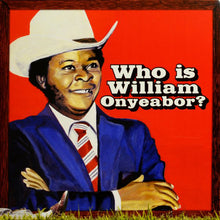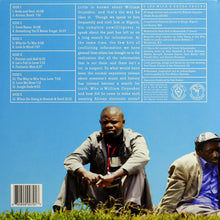Nigerian musician and entrepreneur William Onyeabor is a bit of an intentional cipher biographically. He released eight albums and two singles on his own Wilfilms label between 1977 and 1985. After becoming a born-again Christian, he renounced his past and musical career. Onyeabor became a successful enterpreneurial businessman and an enthusiastic booster of Nigeria's hotbed of Christian music scene. He was also crowned high chief of his native Igbo people of Enugu, one of the country's capitals of commerce. The nine tracks on this years-in-the-making compilation feature music drenched in analog synths, early drum machine sounds, and wah-wah, phase-shifted guitars and basses. It is all seductive, infectious, and timeless. On set-opener "Body and Soul," Onyeabor co-opts tranced-out, Nigerian juju music, saturates it in slow Afro-funk, and weds it all to P-Funk's call-and-response lyric and chorus; after ten minutes, the effect is consciousness altering. "Atomic Bomb" is pure African disco with peeling, phased synths, fat basslines, drum loops, and strident, chunky guitars punctuated by Rhodes pianos; they create a spaced-out backdrop of nearly dubwise effects in this leisurely, insistently pulsing groover. The singing (a female chorus with Onyeabor adding his own gentle stream of consciousness musings) pushes it all to the margin. "Why Go to War," composed and recorded a decade after the Biafran/Nigerian civil war, bridges Onyeabor's brand of Afro-Funk to Fela Kuti's -- especially in the vocal chants and the militancy of its groove. "Love Is Blind," with its tight, repetitive guitar vamp, rolling Space Invaders-style drum machines, echoes, and the jagged weave of chorded and single-line zig-zagging synth runs, fuses the boundaries separating soul, disco, and new wave. None of the previous tunes prepare the listener for the futurist, electro rhythm and analog synth crush that is "Let's Fall in Love," from 1983's Good Name -- perhaps the set's finest track. Over seven minutes, its layered, beaming, stratospheric, proto-techno synths pulse and stab as a high-register soprano sax careens over the frantic tension. Who Is William Onyeabor? may not answer many biographical questions, but it does paint a superb portrait of the musician as a highly original creator and pioneer; it adds depth and dimension to the picture we have of African music during the era.
Thom Jurek/Allmusic




